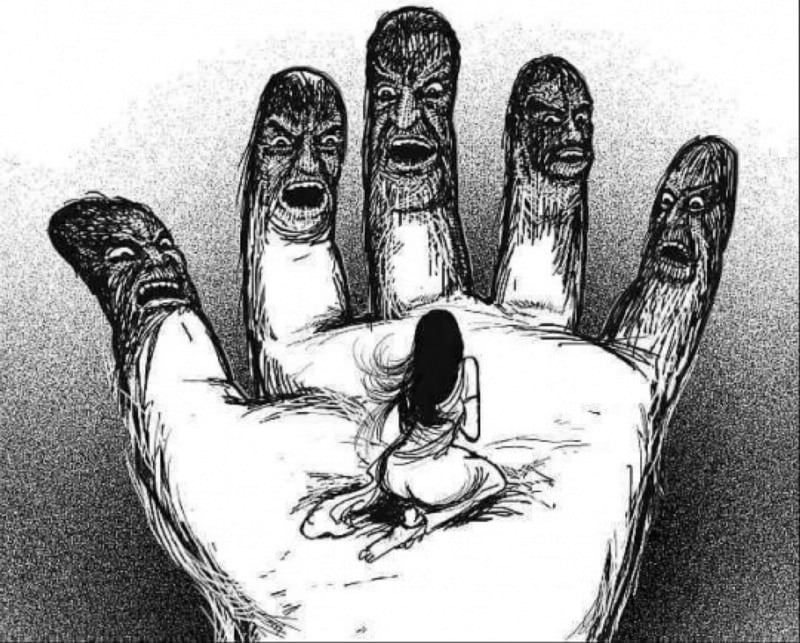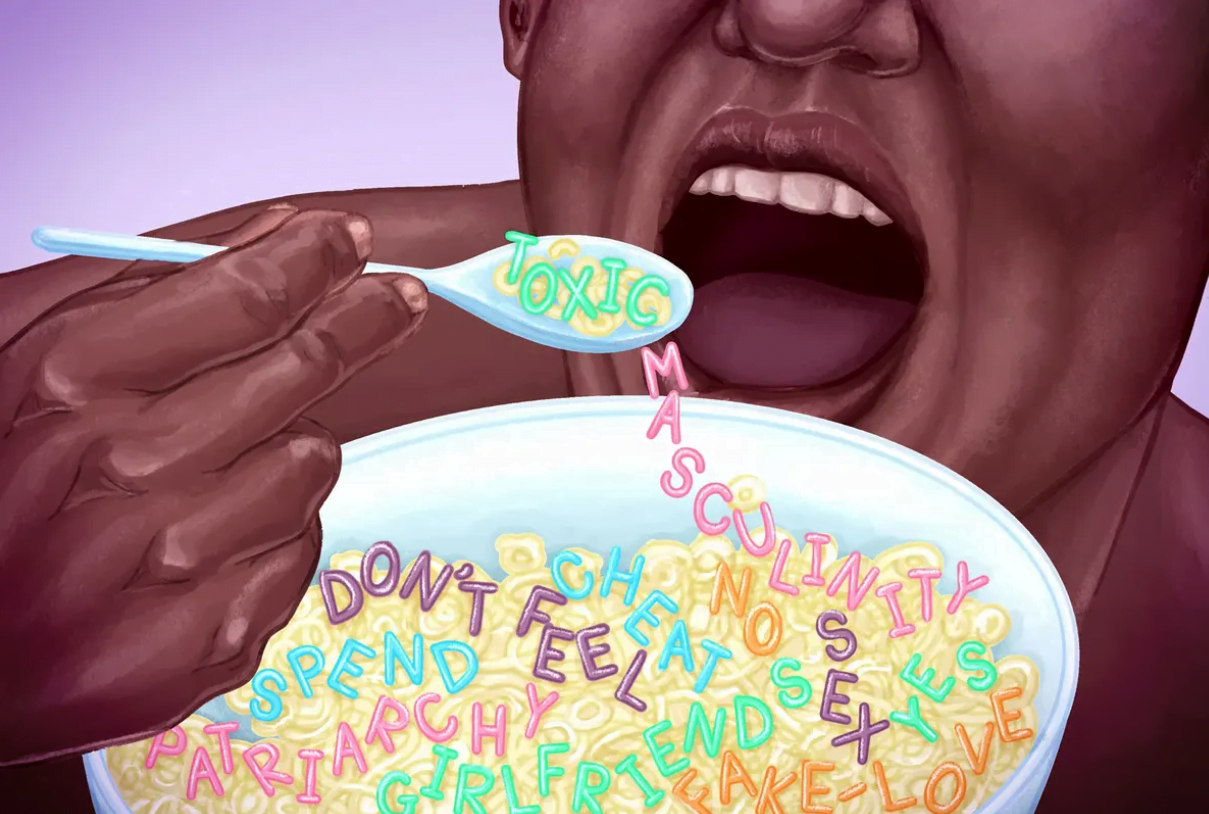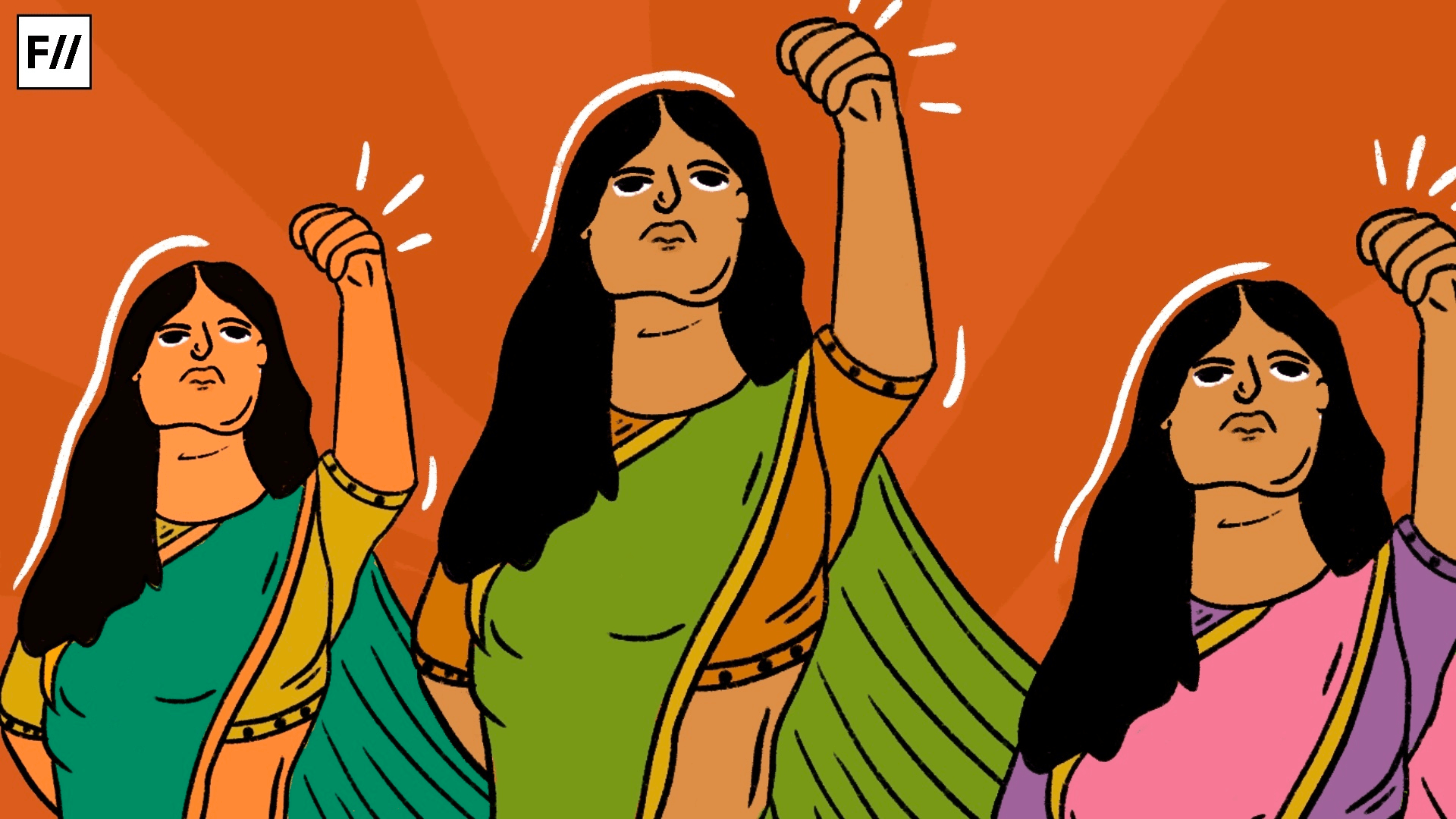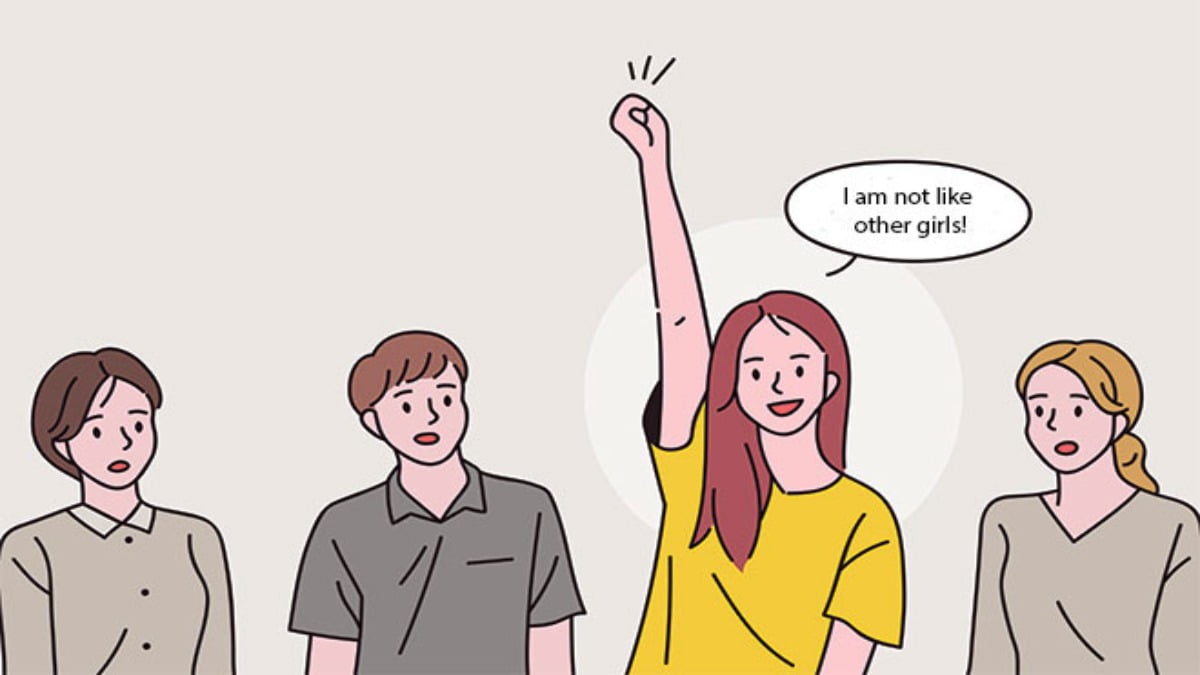We have all, at some point or the other, come across the term ‘Women Empowerment.’ We see it being thrown around way too often since sometime. But, how often do we stop, think and question all that is being done in its guise?
There is no denying the fact that there has been some sort of consciousness and change for the better. A lot of people have at least started acknowledging that there exists an imbalance in the society. As a woman, I find this uplifting. However, as a feminist, I recognize a lot of cracks and flaws in the trend that has started to emerge.
This recognition cropped up because of an incident that happened in my school. Recently, a seminar was conducted in my school where a police officer was invited to educate us on crimes against women. She started off on a fair ground, explaining how we must speak up when we sense something wrong with the way others treat us. I appreciate her for encouraging students to speak up, because that’s something a lot of women I know, have had trouble with. However, she went on to request the boys in the room to leave.
When she made this odd request, half the girls in the room who had been sitting through this for the past few hours started rolling their eyes. But I sensed the actual red flag only when she said the Tamil quote, “Theethum nandrum pirar thara vara” which translates to “Good or bad, it doesn’t come from others”. She went on to explicitly mention that our clothing choices determine if we could be raped or not. She prescribed us all to avoid wearing leggings or short tops because it would be too ‘revealing’.
If you are acquainted with feminist theory, you would know that this promotes (or rather, is) victim blaming. This is the kind of mindset that leads people to ask, “But what was she wearing?” when a woman reports a crime. God forbid! If your answer to this question was one in the list of the ‘immodest’ clothing choices the officer just listed, you’re the reason you were harassed. What is interesting to note here is that this list is not even uniform (not that uniformity would make it any less pointless); it varies from place to place. Sorry to break it to you people, but this claim wouldn’t be valid even in a twisted world where women’s clothes are responsible for crimes against them. Sexual harassment is a manifestation of power.
In the name of women empowerment, the police officer went on to tell us to avoid meeting men outside our houses or schools. She asked us not to accept drinks from them because the drinks might be compromised. While I appreciate her concern for us and her efforts to reduce crimes against women, I can’t help but think,
“Why is she speaking to women to reduce crimes against women?”
Isn’t she supposed to be speaking to the boys? It is much easier to ask them not to temper with our drinks. She would do a lot more favour to us by asking boys not to assume things from our dressing choices. This has been and still is a glaring problem in the way ‘women empowerment’ is being advocated and claimed by so many people (including our governments). Too many people have started saying ‘real women don’t show their bodies’. Let me tell you who a real woman is. Every woman! And that is exactly what anyone claiming to believe in ‘women empowerment’ should be saying.
This problem doesn’t just pertain to schools. It works in almost every other little thing we do and is spread all over the world like a net, holding us captive. Through us, it has found its way into all sorts of media. We see them as seemingly harmless women’s day messages. Messages that say, “Your wife, your daughter, your sister and your mother are women. They cook your food and do your laundry. Hence, respect women,” have found a place not just in our inboxes, but in our minds as well.
The problem with these messages is that it implies that men need a reason other than the fact that women are humans to respect women. Did they have to be reminded that their brothers and sons are men to respect them? These messages don’t even take into consideration the existence of other genders and sexualities. And, the gender roles they propagate are a whole new set of problems.
Now comes the most annoying part of ‘women empowerment’ – the movies that were spawned in support. I recently watched the movie Rudramadevi, the movie adaptation of the life of a queen who ruled the Deccan plateau. The queen was initially named a son because males were preferred as heirs of the kingdoms. The actual queen behaved like the princes and took up all the training the princes had to take up. However, in the movie, the queen had put up a facade and sacrificed expressing her ‘feminineness’ for the country. The movie also let the queen have a day off every year when she dressed like a woman and ran around the place. This was also the case with the old adaptation of the life of Sultan Razia. This queen was specifically known for wearing men’s clothes as she was brought up like a prince. However, the Urdu movie had depicted her as a woman who covered her face in front of men.
The plot story implies that women have an inherent, deep desire to put on sarees and jewels and hence fails to give an actual perspective of the diverse lives and characters women posses. It goes on to ignore the fact that our social lives influence a huge part of our behaviour. While I laughed at the outrageousness of the movie, a large number of people didn’t have a problem buying it. And I don’t need to mention that this is neither the first nor the last movie with a similar motive. These movies give back and reinforce society’s gender roles even further.
It should be duly recognized that the consciousness regarding ‘women empowerment’ means things are changing. But, the kind of gaps that still exist between the feminist movement and these acts of apparent ‘women empowerment’ is enough proof for us to start questioning all that we are fed.





Hey.. Swetha.. So happy for you.. These are wonderful thoughts and that too you are in 12th grade.. Bravo…
Thank you!
You are right on all accounts here. I’m happy to know that the next generation of feminism in India is in good hands. Please do continue to write and share. Thank you!
Thank you! Yes, I will keep writing. From this side, I can tell that the future is definitely in the right hands. I received a lot of support when I spoke about feminism to my friends.
Superb thoughts Swetha…..Congratulation
Hope u publish many more articles
Thank you!
Congrats swethu ….happy about you
Thank you!
You have perfectly pointed out the problem.
Also, I feel that women are shedding their femaleness just to prove themselves at per with men.
Hi Swetha,
Loved reading what you wrote, and your profile at the end of the article even more so.
Every time I see a younger girl obsessing over something other than looks (or boys), I sing a happy song in my head.
About the sarees and jewels, I’d like to share an interesting piece of writing with you that problematizes feminine modes of appearance as those being already inscribed with a subordinated status. You can decide to disagree, but it’s still an interesting stance to know about.
http://faculty.uml.edu/kluis/42.101/Bartky_FoucaultFeminityandtheModernization.pdf
What great writing. Very powerful.